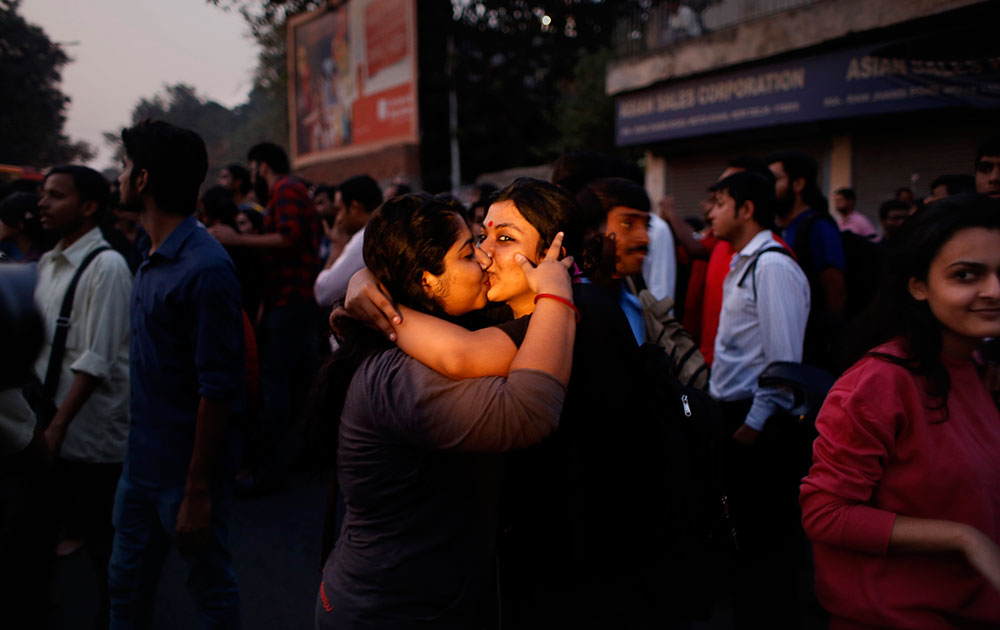They say love and make love for yourself, not to show the world. And if the world in India catches a glimpse of your wonderful love, you will be beaten up. Unfortunately, as pointed out by many, India have come to live in a society where urinating, defecating, fist fighting, name calling, eve-teasing are acceptable public practices. However, showing some love, hugging and kissing are vulgar, unacceptable, and corrupting public practices.
It is true that one should love for oneself and not for the world to see. Taking the same argument forward, if a couple is walking arm in arm on the road, it is for the love they share and not for the world to see. Following a violent incident of moral policing against kissing in Kozhikode, Kerala, a Facebook page called ‘Kiss of Love’ was started. It grew to become a mass movement against moral policing, not only in Kerala but throughout India, with protesters coming out on the roads and kissing in public.

When it comes to India moral policing is nothing new. Every year on days like Valentines’ Day, a lot of right wing activists make life miserable for the youth, reminding them how Indian culture doesn’t permit such ‘immoral’ public display of affection. The argument that they generally put forward is that such displays (like hugging and kissing) ‘corrupt’ the minds of the youth.
In such a case, something like the Kiss of Love movement came in at the right time. It is important to note that there is no censorship on a lot of things that might be sending out messages that objectify women and that are vulgar – in the true sense of the word. For instance, hoardings, advertisements, lyrics in Bollywood films and a great number of other things are extremely provocative and hold far more potential to ‘corrupt’ the minds of the youth than witnessing a hug or a kiss can. The important question here is who decides the boundary or the line between the expressions of love and vulgarity?

The Kiss of Love campaign in this regard has been highly misinterpreted. Opposing activists strongly feel that the campaign promotes vulgarity. However, it simply promotes the right to freedom of expression without any real vulgarity. The Kiss of Love campaign doesn’t encourage youngsters to engage in sexual activity or excessive public displays of affection. It merely highlights that one should have the right to walk hand in hand with anyone they want to out on the streets. Experts also believe that open expressions of love will lead to a decrease in the number of forceful sexual acts and molestation rates in the country.
While Indian youth keep fighting for their right to express love, the most interesting thing to note here is the power of social media in the country. Kiss of Love started off as merely a Facebook page by an aspiring filmmaker, Rahul Pasupalan, who was originally from Kerala. It came out to reality from the virtual world, on the streets on 2nd November and after that the movement only grew bigger, gathering widespread support from a lot of educational institutions and youngsters throughout India. The immense power of social media has hence been used in a spectacular manner, to stir up debate and strive towards a better society.













